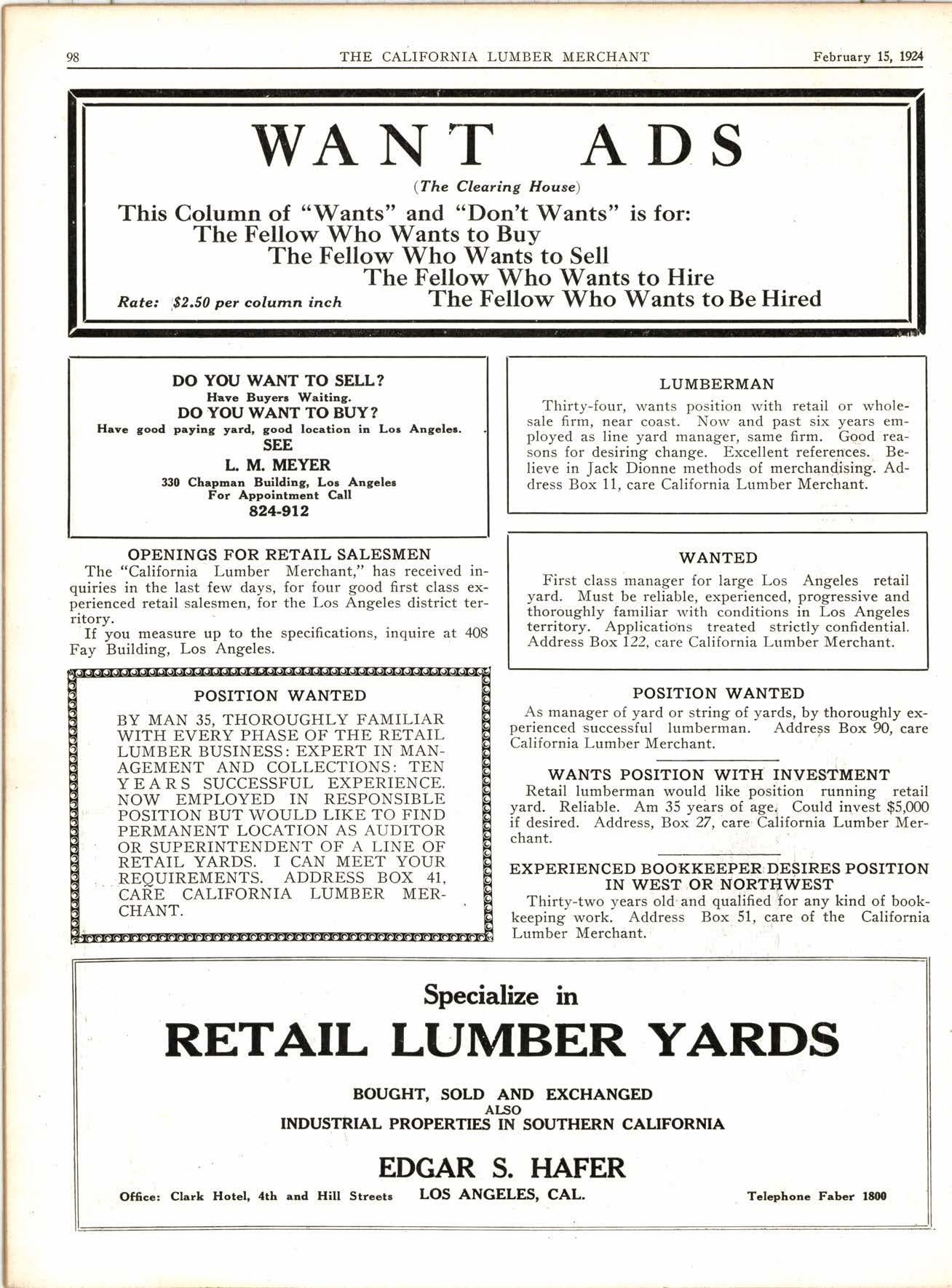
2 minute read
Do You Kno$r
1924 bucinesE conditions are the beet in ten years. The industries using Hardwoods are all in a fourishing condition and the outlook for active demand is cood.
Hardwood consumption has been exc-eeding production, in the last year or two.
Northern production will not be above normal, hardwood production in the south for the next six months will be rctewhit below normal due to heavy rainr.
SOUTHERN LUMBERMAN. i
(Continued from Page 83) he did three years ago. In the past, the many lum'oer dealers made a sorry mess of extending credits. An investigation conducted by a magazine writer in nearly twenty-five Iowa towns disclosed the astonishing informatiorr that from two to three years' annual profits were invariably "on the books" and that in the majority of the cases much of this outstanding could not be collected, except by extenslve as well as expensive litigation. There are hundreds oI thousands of dollars in litigation in every section of tire country today because the salesman thought that the buyer w'as "good." 'He had no actual figures upon which to Dase his conclusions, except the say-so of the buyer himseli.
Poor payers are easy buyers.
Orders look good to the average salesman. He 'doesn't have to work helf as hard to sell the doubtful credit risk as he does to sell the fellow who is A-1. The tmpulse to make an easy sale is one that can scarcely be resisted by the man who isn't a thorough salesman.
We talked not long ago to the manager'of a number ol lum,ber:lnards who conducted an investigation as to how his managers were extending credits.
H,is entire report showed that in many instances 'that credit was extended on ideas that were usually a fabric of 'guess work influenced by personal sympathies.
Prospective customers with pleasing personalities, well 'liked by everyone-the "good fellows"-invariably enjoyed almost unlirnited credit, rcgardless of the fact that they owned nothing upon which any credit rating could be based.
IUAHOGANY BATAAI{ LAMOA ORION BAGAC
For iatcrior trim aud cabinet worL it cannot be rur' pued-tuurcr bcruty, pcrnsDenc€' end durrbility{ortr vcr5z little rnorc lf,rn roft ryoodt-W. own and -opente oui millr ir ttre ?lttippiae lrtendr offcring the dealer a dcpendablc llrpply.
BAGAC ir an idcel imported bardrood rld ir apecieHy edapted for rutomobil,c bodice, boat building' conrtruction work, ctc.
Relatives, near a.nd distant, as well as persorral friends. were able to buy almost anything on time whether they had a dollar to pay for it or not.
Personal favors, fraternal orders, church affiliations, political beliefs, and any number of other friendly relations all had a be,aring on extension of credits.
Perfectly good credit risks were often blue-penciled by managers because of previous personal misunderstandings.
In but few cases could managers be found who really extended credits on actual financial conditions to the exclusion of sympathetic and personal reasons.
In their places, however, came the m'anager who understood the need of active co-operation with the Creclit Departm€nt. He knew the value of authentic credtt informat,ion. I{e realized that selling several hundred dollars' worth of lumber to a poor credit risk was incomparably worse than not making the sale at all. He found that cred' its could be satisfactorily extended only when tne personal element was not made the m,ain factor in the dectsion' In other rvords, an impersonal 'credit rating was not only safer but easier than trying to convince the custorner that the manager's personal opinion was correct.

High prices brought about loose credits, and loose credits made bitter enem,ies out of buyers instead of friends.
The Cash Store always has frien'ds-the Credit Storc gets the enemies.
It is impossible for alry concern or any manager to build
(Continued on Page 86)









